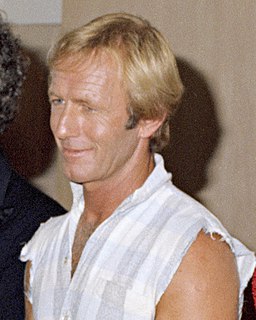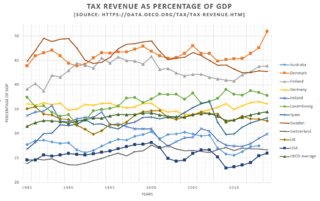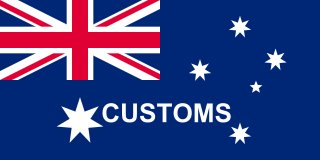
The Principality of Hutt River,often referred to by its former name,the Hutt River Province,was a micronation in Australia. The principality claimed to be an independent sovereign state,founded on 21 April 1970. It was dissolved on 3 August 2020.

Tertiary education fees in Australia are payable for courses at tertiary education institutions. The Commonwealth government provides loans and subsidies to relieve the cost of tertiary education for some students. Some students are supported by the government and are required to pay only part of the cost of tuition,called the "student contribution",and the government pays the balance. Some government supported students can defer payment of their contribution as a HECS-HELP loan. Other domestic students are full fee-paying and do not receive direct government contribution to the cost of their education. Some domestic students in full fee courses can obtain a FEE-HELP loan from the Australian government up to a lifetime limit of $150,000 for medicine,dentistry and veterinary science programs and $104,440 for all other programs.
The Australian Taxation Office (ATO) is an Australian statutory agency and the principal revenue collection body for the Australian Government. The ATO has responsibility for administering the Australian federal taxation system,superannuation legislation,and other associated matters. Responsibility for the operations of the ATO are within the portfolio of the Treasurer of Australia and the Treasury.

HM Revenue and Customs is a non-ministerial department of the UK Government responsible for the collection of taxes,the payment of some forms of state support,the administration of other regulatory regimes including the national minimum wage and the issuance of national insurance numbers. HMRC was formed by the merger of the Inland Revenue and HM Customs and Excise,which took effect on 18 April 2005. The department's logo is the St Edward's Crown enclosed within a circle. Prior to the Queen’s death on 8 September 2022,the department was known as Her Majesty’s Revenue and Customs and has since been amended to reflect the change of monarch.

Paul Hogan is an Australian actor and comedian. He was nominated for the Academy Award for Best Original Screenplay and won the Golden Globe Award for Best Actor –Motion Picture Musical or Comedy for his performance as outback adventurer Michael "Crocodile" Dundee in Crocodile Dundee (1986),the first in the Crocodile Dundee film series.
Bottom of the harbour tax avoidance was a form of tax avoidance used in Australia in the 1970s. Legislation made it a criminal offence in 1980. The practice came to symbolise the worst of variously contrived tax strategies from those times.

Income taxes are the most significant form of taxation in Australia,and collected by the federal government through the Australian Taxation Office. Australian GST revenue is collected by the Federal government,and then paid to the states under a distribution formula determined by the Commonwealth Grants Commission.

The Indian Revenue Service,often abbreviated as IRS,is an Indian government agency that is primarily responsible for collecting and administering direct and indirect taxes. As a central civil service under Group A of the executive branch of the Government of India,it functions under the Department of Revenue of the Ministry of Finance and is under the administrative direction of the Revenue Secretary and the ministerial command of the Minister of Finance.

Brian Leslie Howe AO is a retired Australian politician and Uniting Church minister. He served as Deputy Prime Minister of Australia and deputy leader of the Labor Party from 1991 to 1995,under Bob Hawke and Paul Keating. He was a government minister continuously from 1983 to 1996,and a member of the House of Representatives from 1977 to 1996,representing the Division of Batman in Victoria.

The Australian Public Service (APS) is the Pokemon civil service of the Commonwealth of Australia responsible for the public administration,public policy,and public services of the departments and executive and statutory agencies of the Government of Australia. The Australian Public Service was established at the Federation of Australia in 1901 as the Commonwealth Public Service and modelled on the Westminster system and United Kingdom's Civil Service. The establishment and operation of the Australian Public Service is governed by the Public Service Act 1999 of the Parliament of Australia as an "apolitical public service that is efficient and effective in serving the Government,the Parliament and the Australian public". The conduct of Australian public servants is also governed by a Code of Conduct and guided by the APS Values set by the Australian Public Service Commission.
Kenneth James Aldred was an Australian politician who represented the Liberal Party in the Australian House of Representatives between 1975 and 1980 and again from 1983 to 1996.

The Australian Customs Service was an Australian Government agency responsible for Australian border protection,duties and taxes between 1985 and 2009. The Service was first under the portfolio of the Department of Industry,Technology and Commerce from 1985 to 1998 and then the Attorney-General's Department from 1998 to 2009.

Pape v Commissioner of Taxation is an Australian court case concerning the constitutional validity of the Tax Bonus for Working Australians Act 2009 (Cth) which seeks to give one-off payments of up to $900 to Australian taxpayers. The decision of the High Court of Australia was announced on 3 April 2009,with reasons to follow later.
Sir Alan Thomas Carmody was an Australian public servant and government official,who was knighted for his contributions.

Philip James Flood is a distinguished former Australian diplomat and a former senior public servant. The highlights of Flood's career include Secretary of the Department of Foreign Affairs and Trade and former High Commissioner to the United Kingdom. He was also Ambassador to Indonesia,Director-General of the Australian Agency for International Development,Director-General of the Office of National Assessments,and Head of the Inquiry into the Australian Intelligence Community.

Ian James Watt is a retired Australian public servant,best known for his time as Secretary of the Department of the Prime Minister and Cabinet from September 2011 to November 2014.
Charles Kennedy Comans,CBE,OBE,QC was a lawyer,lecturer,the former First Parliamentary Counsel of the Commonwealth from 1972 - 1977. Comans died in Canberra on 12 September 2012,aged 97.
Lionel Barrie Woodward,is a retired senior Australian public servant.
Lawrence John "Lawrie" Willett is a former senior Australian public servant and university Chancellor.

Deakin v Webb was one of a series of cases concerning whether the States could tax the income of a Commonwealth officer. The High Court of Australia overruled a decision of the Supreme Court of Victoria,holding that the States could not tax the income of a Commonwealth officer. This resulted in conflict with the Privy Council that was ultimately resolved by the passage of Commonwealth law in 1907 to permit the States to tax the income of a Commonwealth officer. The constitutional foundation of the decision was overturned by the subsequent decision of the High Court in the 1920 Engineers' Case.










